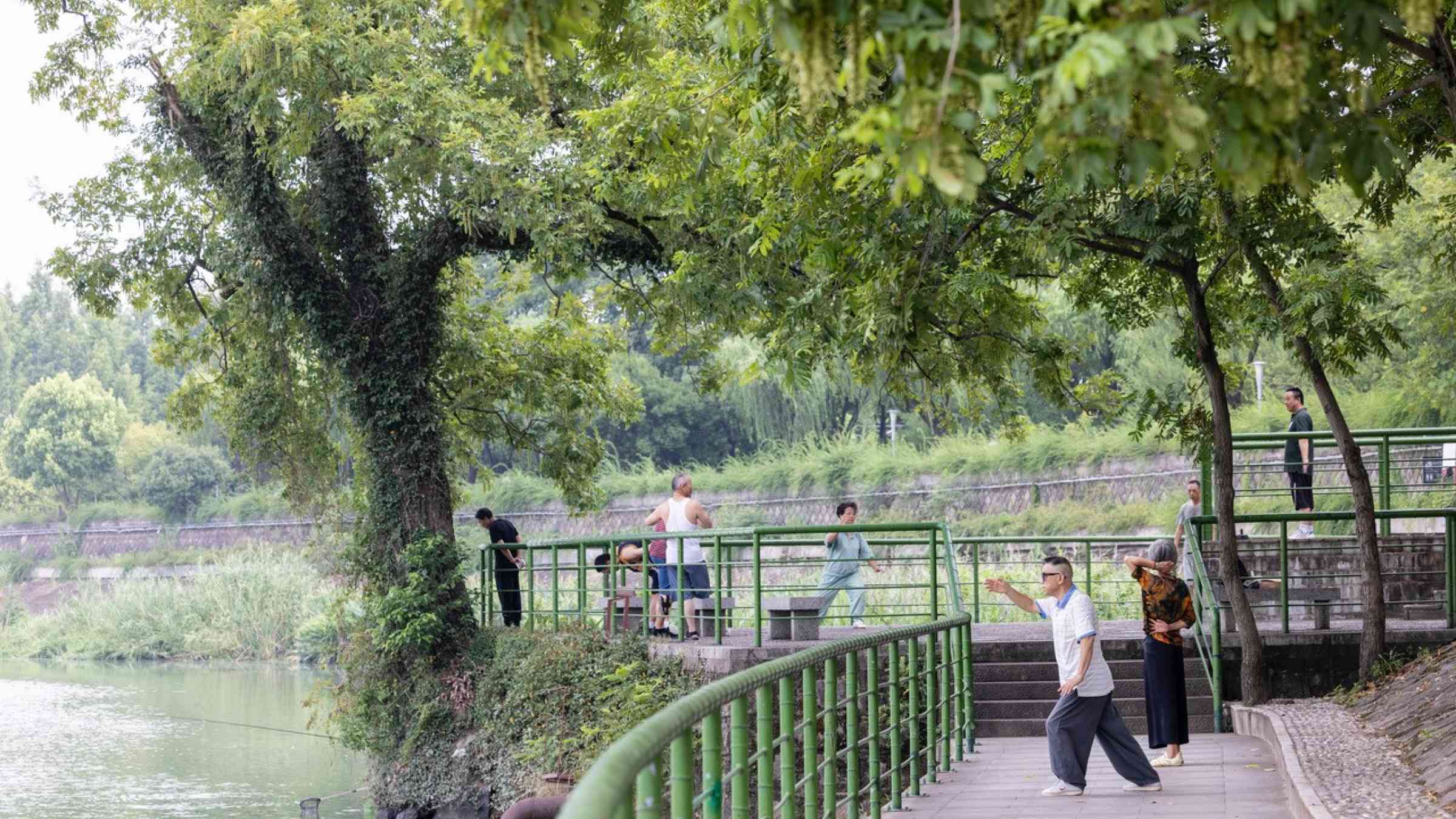Chinese city commits on resilience

The city of Zhuji has been recognized as the first Making Cities Resilient 2030 (MCR2030) Resilience Hub in China, heralding a major milestone for the global partnership.
The city, which is renowned for its rich history and as a centre for the pearl industry, has transformed its approach to disaster management in the face of increasing flood risks. Zhuji has established 242km of new sewage collection networks, which has significantly enhanced the city's flood prevention and storage capabilities.
This major infrastructure upgrade has reduced the threat of water-related hazards. The investment has also opened up avenues for water-based leisure, catering, and homestay tourism, bolstering livelihoods and the local economy. The city has adopted an innovative ‘Four-way contribution’ financing model, which pools resources from the government, private sector, land transfer fees, and social investments. This model helps ensure the sustainability of funding for Zhuji's resilient urban development ambitions.
Zhuji has developed a strong partnership with the ARISE private sector global network, including sustainability strategy and technology firm Green Diamond, LLC, via a Resilience Assessment and Strategic Planning process. Green Diamond’s team included former ARISE global Co-Chair, Dale Sands, and current ARISE-US Board Chair, Peter Williams, co-authors of UNDRR’s Disaster Resilience Scorecard for Cities.
Green Diamond Founder and CEO Todd Fein, another ARISE-US Board member and former US Franklin Fellow for global sustainability reporting, said: ‘Zhuji offers prime examples of resilience, and how to pursue integrating it into sustainable development. ‘Mayor Zhang is visionary and committed, so we’re proud to be a partner. We look forward to working with Zhuji and the UN as force multipliers for all cities, countries, and citizens on the journey to develop a more sustainable future.'
Zhuji aims to empower other municipalities through the hosting of forums, workshops, and training programmes that will enhance the development and implementation of resilience strategies. It also wants to fortify its own infrastructure and social fabric against potential threats and share its wealth of knowledge and innovation with other cities, both within China and globally.
Zhuji has demonstrated leadership in smart city concepts, flood management, emergency response, and sustainable financing, all adaptable to various urban contexts. Its waterfront restoration initiative is a testament to its integrated approach, combining water environment management, cultural exploration, and resource utilization to promote economic growth and social development. Notably, the ‘River Chief’ system, with the Mayor, Zhang Kunlun, at the helm, has significantly boosted coordination efficiency, river protection, and public awareness, becoming a model for ecological governance.
Supporting other cities
Zhuji has extended its expertise and resources to other cities, particularly through its emergency response teams during disasters. The teams' diverse capabilities range from earthquake and water rescue to emergency communication and safety support. The Zhuji Fire Brigade has been instrumental in disaster relief efforts, offering a supportive hand to neighboring cities. Zhuji's spirit of cooperation extends to sharing emergency management experiences, equipment, and comprehensive waterfront restoration knowledge with cities such as Shaoxin, Yiwu, Hangzhou, and Shanghai.
Johnny Huang, Co-Founder of the Sustainable Finance Institute and advisor to the Center for Sustainable Development (CSD) at the China Industry Development Research Institute (CIDRI), introduced helped facilitate the Resilience Assessment and Strategic Planning process. ‘Zhuji is a role model for disaster risk assessment and readiness, knowledge sharing, and emergency assistance. I’m optimistic about the contribution Zhuji will make to resilience and sustainable development at the regional, national, and global levels,’ he said.
Three-year plan
Looking ahead, Zhuji aims to become a global hub for resilience over the next three years. It will host a series of UNDRR-organized events to foster an exchange of learning as well as further enhance its own urban resilience through tools such as UNDRR’s Scorecard and Resilience Assessment and Strategic Planning integration. Zhuji will maintain a team of experts to advise on disaster resilience topics and offer other cities a comprehensive resilience assessment approach, using Zhuji's own experiences as a case study for strategic improvements. The city also pledges to support the formation and operation of the ARISE-China Network, providing a startup grant and resources to stimulate private sector collaboration in resilience innovation.
Lastly, Zhuji aspires to establish a Chinese Language Resilience Knowledge Exchange Hub, sharing expertise and resources in disaster risk reduction and climate resilience, tailored for Chinese-speaking communities. “Zhuji is committed to creating a resilient city through integrated risk management, promoting economic development, enhancing the well-being of our residents, and sharing our experiences with the broader global audience.” Zhang Kunlun, Zhuji’s Mayor emphasized as the intention to promote urban resilience through MCR2030. Through these endeavors, Zhuji is seeking to enhance its own resilience as well as catalyze a shared vision for sustainable development and resilience among cities worldwide.

